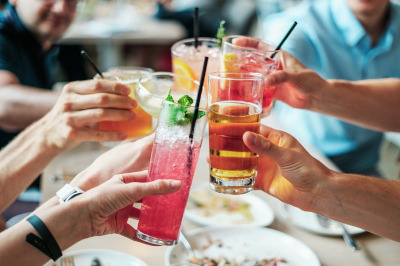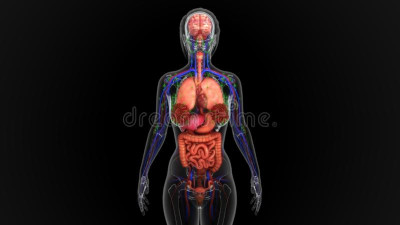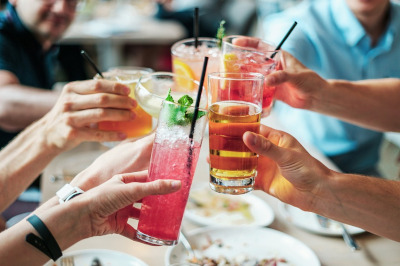YoU mAy Or MAy nOt hAVE eXpERiEnCeD iT BeFORe…BeINg dRUNk. THE FeELiNg Of dIzZiNeSs, EuPHoRiA, CoNFIDeNce, chAngGes iN yOUr vISIon, lEss InHiBItiOn And lOSs oF cOOrDiNaTiOn oR bAlAnCe aND aLl tHaT, At tHE sAMe tImE. EVeRYtHinG tHaT yOu ArE tRyInG tO Do iS wAy HArdEr FoR YOu tHaN nORMAl. While you were reading those first four sentences, you might experienced some struggles and that is a good example of the feeling of being drunk.
what do we mean by ‘being drunk’?

After you have consumed alcoholic beverages, you can feel different than before. Usually this is already after 10 minutes, but this also depends on how much and how fast you drink alcohol. The alcohol eventually reaches your brain through your mouth and your bloodstream. You’ll read more about this process later. However, once the alcohol is in your brain, it is more likely that you feel drunk after. ‘Being drunk’ is a general term for the symptoms you may experience after drinking alcohol. Such as; Loss of coordination or balance, impaired reflexes, slurred speech, vision changes and sleepiness. Of course, these symptoms can vary from person to person. It could also be that you only suffer from one of those symptoms. At the beginning you might feel happy, more social and confident, and less inhibited (this causes your brain). Nonetheless, as you get drunker, you’ll start to experience more/stronger of those symptoms. Additionally, how you experience this differs from person to person, some people enjoy that feeling and others don’t. At first you think alcohol causes you to become happier, but as the alcohol makes its way through your body, you may experience depressant symptoms.
The journey of alcohol in your body.
Before you learn more about the journey that alcohol makes in your body, it is important that you learn a little more about the chemical ‘Ethanol’. Ethanol (the primary ingredient in alcoholic beverages) is the official name for the substance in alcoholic beverages that causes intoxication. Ethanol is a byproduct of plant fermentation. So the formation of Ethanol is the result of another process. Ethanol is formed when the sugars in plants ferment. Think about how wine is made from the sugars in grapes.
As soon as alcohol passes your lips , the process of intoxication starts. Once the alcohol is in your mouth, the alcohol starts to get in your bloodstream through the tiny blood vessels. However, this is only a small part of the alcohol that passes your lips. The rest of it will go to your stomach and your small intestine. In your stomach 20 percent of the alcohol will go into your bloodstream and everything that is left, will get into your bloodstream via your small intestine.

Now that the alcohol is in your bloodstream, it is able to move around your whole body. This affect various bodily systems until your liver is able to break down the alcohol. The alcohol in your bloodstream can cause your skin to flush, a temporary feeling of warmth, a rapid decrease in your body temperature and a drop in your blood pressure. Those effects are the result of the widening in your blood vessels. Through your bloodstream, the alcohol will get into your brain and nervous system and you kidneys, lungs and liver.
The alcohol in your brain will cause dopamine release, slower brain response, lack of coordination and increased urination and dehydration. The euphoric feeling that you experience after you consumed alcohol, is the result of the release of dopamine from the reward center in your brain. In addition to dopamine, some serotonin may also provides the euphoric feeling. In fact, dopamine and serotonin are both neurotransmitters involved in feeling happy and calm. The slower brain response is caused by the alcohol that increased the effects of GABA. The results of this slowed neurotransmitter are the slurred speech and the loss of inhibition that you might experience while getting drunk. You also may have noticed that an inebriated person is stumbling, sleepy and/or passing out. The stumbling is the result of the sensitivity cerebellum, the part of your brain that controls the coordination, for alcohol. The alcohol can also damp the reticular system, the area in the brain-stem that controls consciousness, and this is the reason behind the sleepiness and passing out. Alcohol is also able to strongly damp vasopressin. This is a hormone that prevents our kidneys from eliminating too much fluid. Normally, your brain produces a normal amount of ADH, but alcohol limits this ADH production. ADH is a hormone that tells your kindeys how much water to conserve. That is why you have to urinate so much and may dehydrate when you drank alcohol.
Logically, the blood in your bloodstream streams also through your lungs. Therefore the alcohol that you consumed makes it into your lungs and you breathe out a total of 8 percent of the alcohol in your bloodstream through your lungs. Your liver suffers a lot when you enjoy a night of drinking alcohol. This is because your liver works hard to get most of the alcohol out of your body. The liver oxidizes alcohol into water and carbon monoxide. It can only oxidize a limited amount of alcohol per hour; therefore, the faster you drink, the longer the alcohol stays in your body and how higher the chance get to get an alcohol poisoning.
Now that we know more abut the journey of alcohol in your body and the consequences for your body, we can look at the factors that influence our alcohol tollerence.
- Your weight
The less body tissue you have, the more and faster you will feel the symptoms that we talked about before. A smaller body gives the alcohol less space to diffuse.
- Your biological sex
A female has more body fat, less body water and fewer of the enzymes that metabolize alcohol than male. The higher fat percentage causes the alcohol to stay longer in your body. And because of the less body water, the female body is less able to dilute alcohol.
- The type of alcohol
Highly concentrated beverages and fizzy/bubbly drinks absorb faster into your body.
- How much food is in your stomach
Food in your stomach slows the absorption of alcohol. Therefore if you want to survive the whole night, it is important that you don’t have an empty stomach.
The next time you enjoy a night drinking with friends, you know more about the symptoms, the journey and consequences of alcohol. It is important that you know your limits and therefore know when to stop with drinking. But don’t forget to enjoy your time and have a lot of fun.
October 26, 2022
Sources
- https://www.healthline.com/health/why-does-alcohol-make-you-drunk (Healthline, October 26, 2022)
- https://greatist.com/play/why-does-alcohol-make-you-drunk (Greatist, October 26, 2022)
- https://www.hackensackmeridianhealth.org/en/HealthU/2018/12/27/what-happens-to-brain-drink-alcohol#.Y1AskbtByt8 (Katie Lynch, October 26, 2022)
- https://www.therecoveryvillage.com/alcohol-abuse/drunk/ (The Recovery Village, October 26, 2022)
Pictures
- First picture: Bridgesward, 26 October, https://pixabay.com/el/photos/%ce%b1%ce%bd%ce%b1%cf%88%cf%85%ce%ba%cf%84%ce%b9%ce%ba%ce%ac-%ce%b1%ce%bb%ce%ba%ce%bf%cf%8c%ce%bb-%ce%ba%ce%bf%ce%ba%cf%84%ce%ad%ce%b9%ce%bb-2578446/
- Second picture: 7active studio, 26 October, https://www.dreamstime.com/stock-photo-human-anatomy-fundamental-to-every-medical-healthcare-professional-however-science-effects-stroke-image75367950

